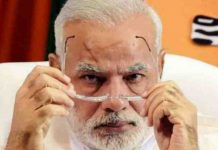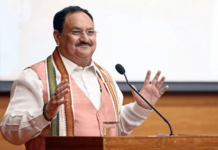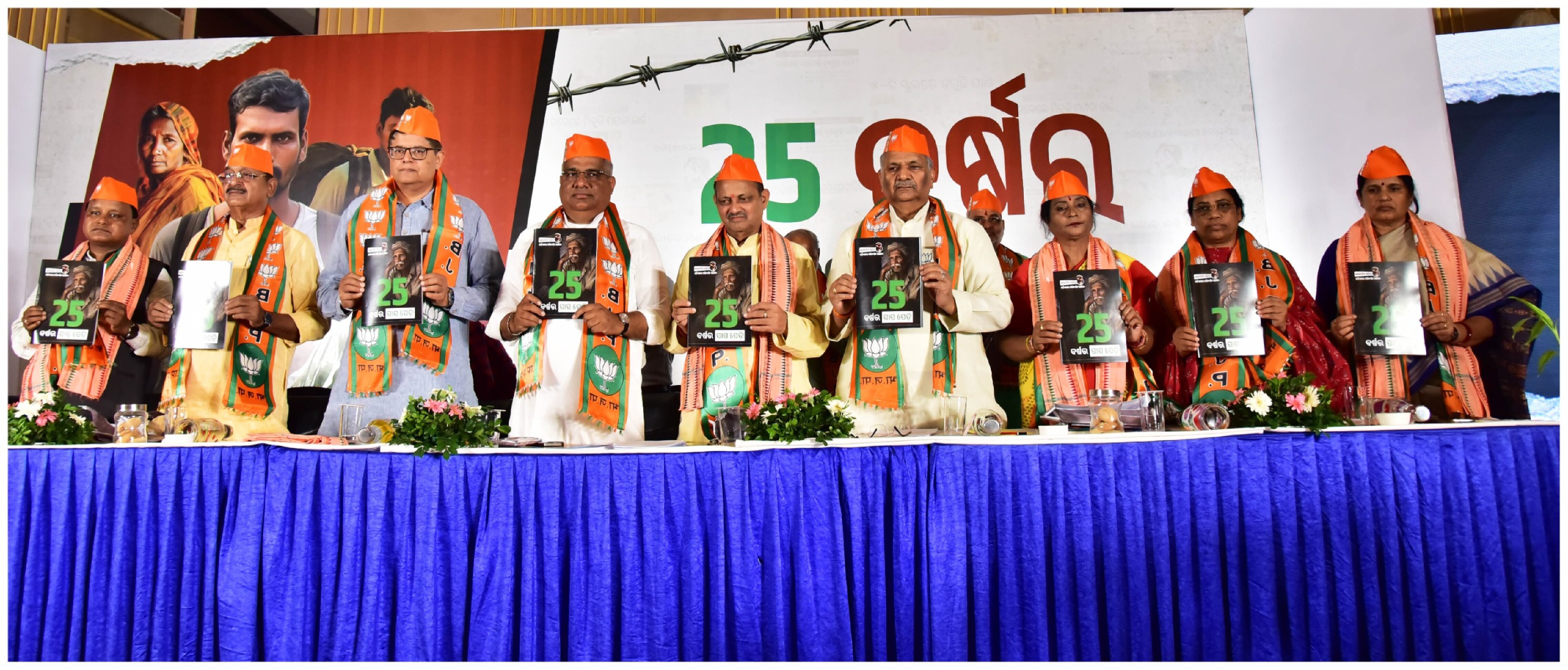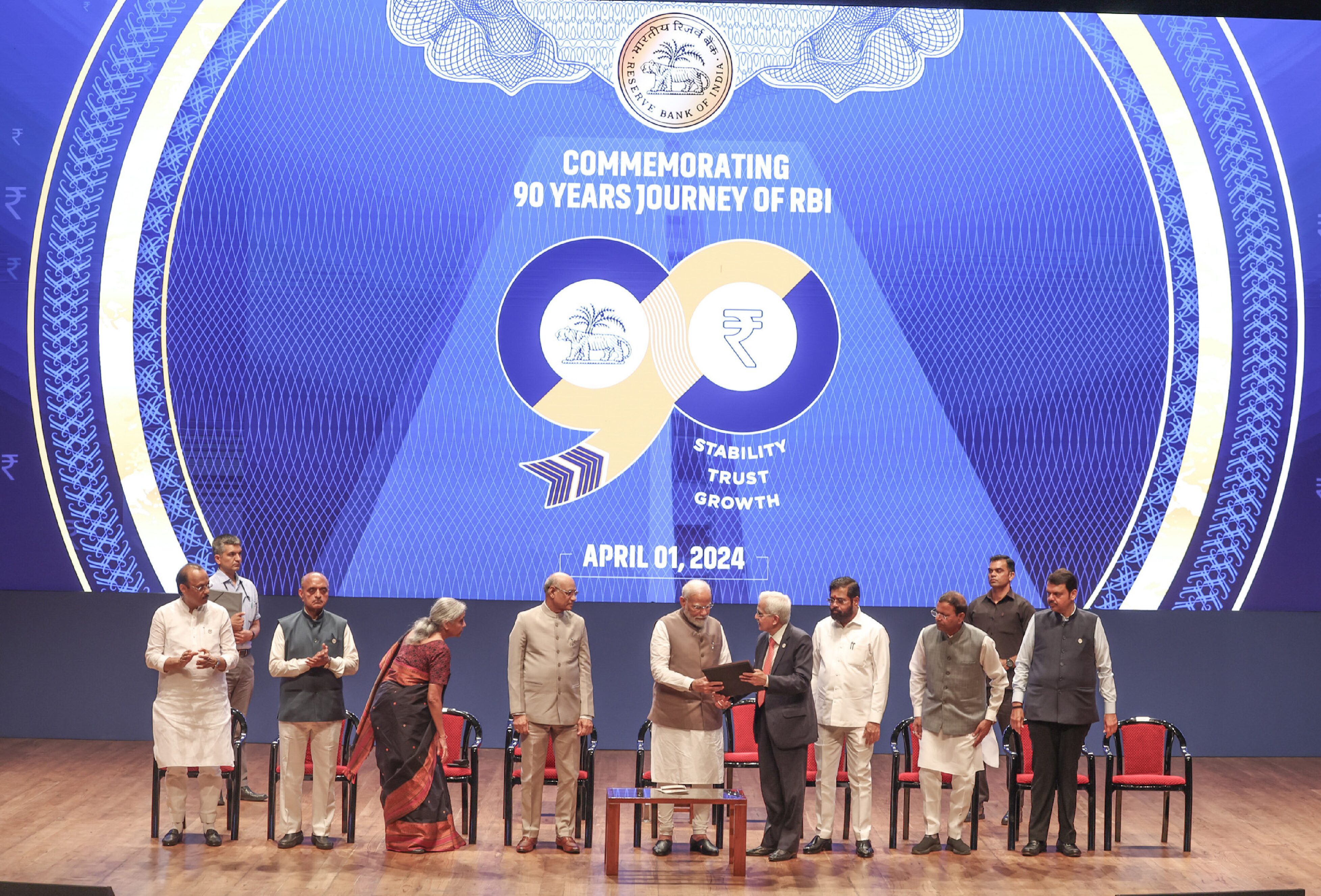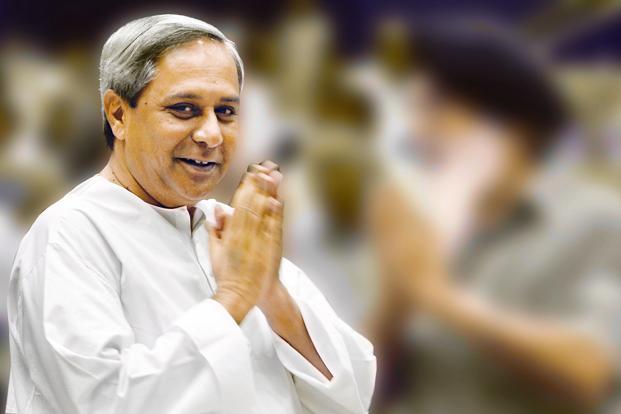The next elections are not far away. They are going to be extremely crucial for the ruling Biju Janata Dal because of a variety of reasons, the most important of them being the fact that a sixth consecutive win at the hustings will make Naveen Patnaik the longest serving chief minister of the country. The BJD, as usual, is better prepared than its rivals to face the polls. The core strategy of the party and its government is to keep every segment of the voters happy.
Elections are in the air. All the major parties in the state appear to have switched into the poll mode but none appear to be better prepared for the battle of hustings than the Naveen Patnaik-led Biju Janata Dal. Always first off the blocks when it comes to preparing for the polls the BJD government has made some important announcements recently with an eye on elections.
The state cabinet recently approved ‘Ama Odisha, Nabin Odisha’ scheme with a proposed allocation of Rs 4,000 crore for the development of rural infrastructure and providing linkage to small and existing projects. The name of the scheme, which uses the name Nabin, also has a religious aspect with a vision to transform Odisha into a modern state while upholding the Jagannath culture. It is based on inclusiveness and embraces everyone irrespective of caste and community, the chief minister said while announcing the scheme. He described it as a historic move to preserve Jagannath culture and local places of worship, sites of historical significance and provide amenities to pilgrims and visitors with every gram panchayat eligible to take up work of up to Rs 10 lakh.
The emphasis on panchayats is important in an election year. “Who better to implement the important work than our Panchayati raj institutions through the new scheme,” he pointed out while also underscoring the need for internet connectivity, playgrounds and science parks for the youth. They also need training facilities, work hubs and skill centres for rural entrepreneurs, especially women.
“We need to bridge the gap in education infrastructure, provide banking facilities, build digital infrastructure and take up other modernisation work. The scheme will support panchayats to take up such work,” he added. The new intervention will be fully funded by the state budget. The scheme will cover all gram panchayats of the state with an entitlement of Rs 50 lakh.
On the other hand, the chief minister has asked all departments and district administrations to give top priority to grievance redressal and ensure that petitions received from common people are resolved at the earliest.
Reviewing the district-level public grievance redressal meetings by the CMO, he said that all petitions should be resolved with a sense of urgency. Stating that grievance redressal will be taken up under ‘Mo Sarkar’, he said the CMO will make calls to people from the next month onwards to understand how their problems are being addressed. More than 18,000 petitions have been received in these decentralised meetings. Officials are visiting the districts and even the blocks for this purpose.
5T secretary VK Pandian, who joined the meeting via video-conference, briefed the chief minister on the main issues raised by the people during his visit to Angul district. The chief minister directed the officials to take immediate action to resolve them. The chief minister also approved proposals to mitigate the impact of man-elephant conflict in Angul district and sanctioned Rs 4.65 crore for the purpose.The money will be utilized for various mitigation measures such as 41 km solar fencing, 20 km-long elephant proof trench, installation of 43 high mast lights and 10 bio-acoustic devices. The scheme will be implemented in 43 most vulnerable villages and completed in a year’s time.
The chief minister also announced that a memorial will be built at Pabitranagar to honour the contribution of Pabitra Mohan Pradhan to India’s freedom struggle and development of Odisha. The medical college will be named after Pabitra Mohan Pradhan and the hospital will be operationalised by October. The bridge being constructed on Brahmani river in Kaniha will also be named after the great personality, he said.
All this is an indication that both the ruling party and its government are seriously preparing for the elections. Not only are people’s grievances being redressed but their hopes and aspirations for a better life are also being taken note of for formulation of policies.
There is equal emphasis on the development of the vast tribal population of the state as they also constitute a sizable vote-bank. Odisha is a tribal-dominated state, with 22.85% of the population belonging to scheduled tribes and 17.13% from Scheduled Castes. Keen on their development Odisha will provide a one-time financial assistance of ₹50,000 to needy Scheduled Castes and Scheduled Tribes students from underprivileged backgrounds pursuing degree courses in any government college from this academic year.
“My government has been taking sustained interventions to improve the socioeconomic conditions and realize the educational needs of our tribal communities. Education, livelihood and protection of their rights have been our focus area,” the chief minister said at a meeting of Tribes Advisory Council. “A one-time financial assistance up to ₹50,000 to needy ST-SC students from underprivileged backgrounds pursuing general degree course in any government institution in the state will be provided from this year,” Patnaik said.
Aware that education is key to socio economic upliftment, the state government has been laying emphasis on providing residential facilities to tribal students. Hostel facilities are available to more than six lakh students from 4.2 lakh households in 1,735 schools functioning under the SC/ST development department.
In the past over two decades the number of high schools under the department has almost doubled, from 215 to 422. Similarly, 62 higher secondary schools have been opened. In Odisha, the literacy rate is 69% for SCs and 52.24% for STs, much below the average literacy rate of 73% for the state. Hence, growth of the education sector is a must. This is an area which has been prioritized by the government and will remain one of the highlights of the ruling party’s campaign for 2024 elections.
The state is already providing pre-matric scholarship to SC and ST students from class 8 to 9, and from class 9 to 10 to reduce drop outs and improve enrolment and attendance. The pre-matric scholarship entails complete tuition fee, college admission fee, library fees, sports fee and monthly maintenance allowance of ₹550-1200.
It is also giving post-matric scholarships to SC/ST students through which scholars receive a waiver of 90% of the academic fee and other expenses for the entire duration of a 4-year course up to an amount of ₹1 lakh per annum. In order to provide better education to the ST/SC students in the best English medium schools of different towns and cities of 17 districts of the state, a programme called Anwesha has been introduced. The government has set up special development councils for promotion, protection and preservation of tribal culture and traditions, heritage and identity by involving tribal people. The programme has been expanded to 172 blocks of 23 districts, covering more than 84 lakh tribal people. The state has launched a new scheme, ‘Mo Jungle Jami Yojana’ to ensure the right to hold and live in forests to all eligible tribal forest dwellers.
Thus, the government is taking care of various segments of voters. The BJD, no wonder, remains confident about doing well in the next elections.







